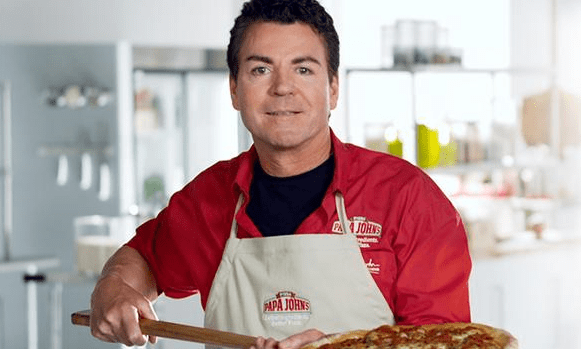 After news got out that Papa John’s chairman and founder John Schnatter had uttered a racial slur at a sensitivity training session, it took barely 24 hours before the stock market trimmed 5% off company’s share value. That was for starters. Then the company announced his resignation. Later, the board of trustees of the University of Louisville, where Schnatter was also chairman, asked him to resign.
After news got out that Papa John’s chairman and founder John Schnatter had uttered a racial slur at a sensitivity training session, it took barely 24 hours before the stock market trimmed 5% off company’s share value. That was for starters. Then the company announced his resignation. Later, the board of trustees of the University of Louisville, where Schnatter was also chairman, asked him to resign.
This episode followed Schnatter’s departure as chief executive last December after speaking critically about the NFL’s protests. The football league dropped the company as their pizza franchise and awarded it to Pizza Hut.
Now there are no more organizations left to fire Schnatter, no more boards to resign. So how did such a storied entrepreneur take such a wrong turn?
In 1983, Schnatter helped his father out by selling his new Camaro to pay the bills, using what was left over to start a pizza delivery company. Hard-charging entrepreneurial skills enabled him to lead the company to become one of the most successful and most significant in the fast food category. The company was famous enough to recruit the same ad agency that handled Amazon, BMW, and Nike.
And that is where the trouble came home to roost. Schnatter’s success took him into the big leagues, but lack of understanding what the public wants in a business leader led to his downfall.
“The incident following the NFL fiasco meant a sad coda for John Schnatter’s role in the company he founded and built.”
Entrepreneurs have exceptional skills, and without them, we don’t end up with Amazon or Apple. But those same skills — impatience, outspokenness, brusqueness — can be unsuited to a public setting where every utterance is subject to a cynical media.
Even more so, cultural, regional and generational backgrounds don’t always mesh with a new era, or it can also just be a mindset. When Elon Musk spoke imperiously to a Wall Street analyst, the media criticized him because he said those things in public, whereas it would have been a very natural thing for him to speak that way in private. For a public company or a public figure, the rules are different and more stringent. If you don’t like it, as the saying goes, get out of the corporate kitchen before, like Schnatter, you are forced out.
The irony is that Schnatter was working on improving his racial sensitivity skills. When he became defensive on the call, he used the example of an iconic entrepreneur who got away with worse behavior, according to Forbes:
“On the May call, John Schnatter (Papa John’s chairman) downplayed the significance of his NFL statement (regarding TakeTheKnee protests). ‘Colonel Sanders called blacks n — — -s,’ before complaining that Sanders never faced a public backlash.
Schnatter also reflected on his early life in Indiana, where, he said, people used to drag African-Americans from trucks until they died. He intended for the remarks to convey his antipathy to racism, but multiple individuals on the call found them to be offensive, a source familiar with the matter said.”
Uttering a racial slur in a “role-playing exercise” with super hip millennials from Brooklyn trying to help you overcome racial insensitivity sounds like a plot for an SNL skit.
For a super cool ad agency like Laundry Service that was hosting the training, the only option was firing the client. The employees on the call were offended, and they would have rebelled if the agency ignored this event, and as a media buyer, they are also the likely source of the story in Forbes.
The incident following the NFL fiasco meant a sad coda for Schnatter’s role in the company he founded and built.
It speaks to the need to recognize the cultural revolution that is happening across our country. We no longer have regional ways or generational thinking. What we think and feel is now as important as how we behave and what we stand for.
It is a simple lesson, but hard to learn.
Related: Steve Ritchie Takes Papa John’s Helm, As Founder Schnatter Gives Way To Difficulties







